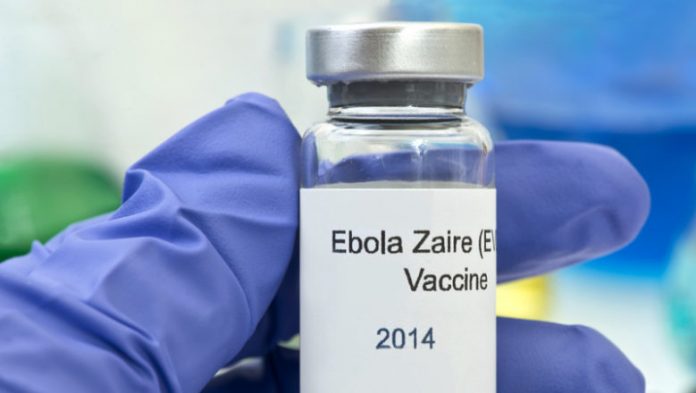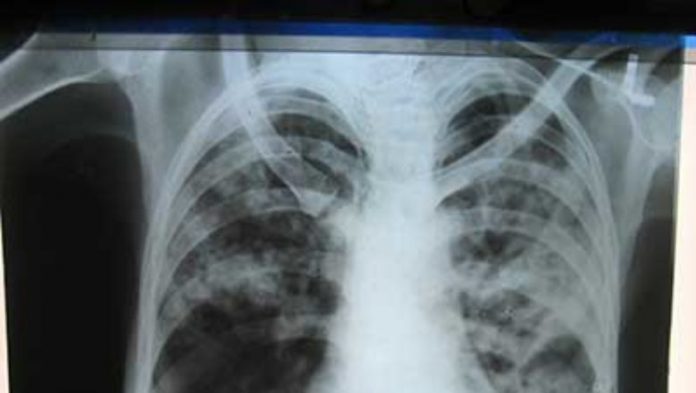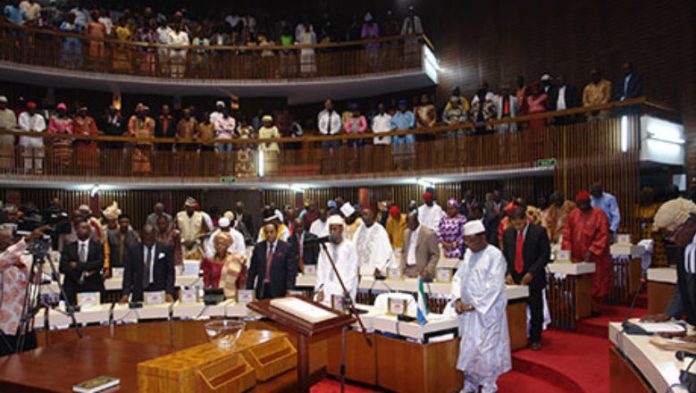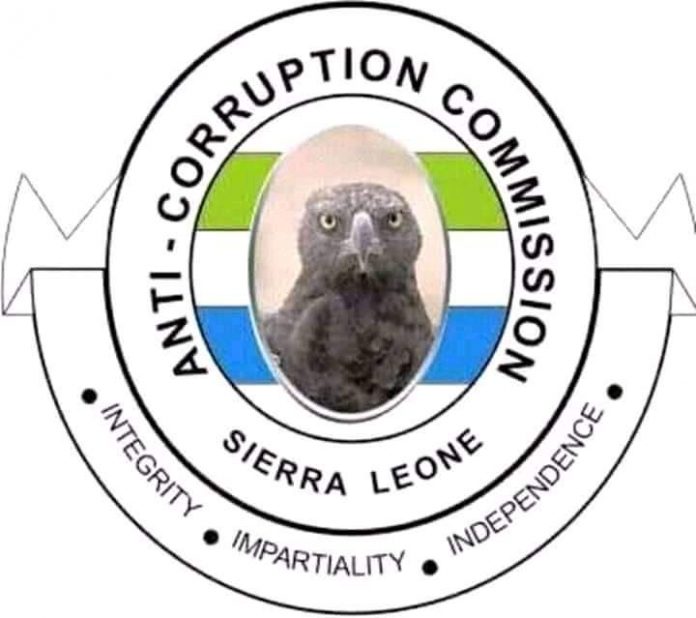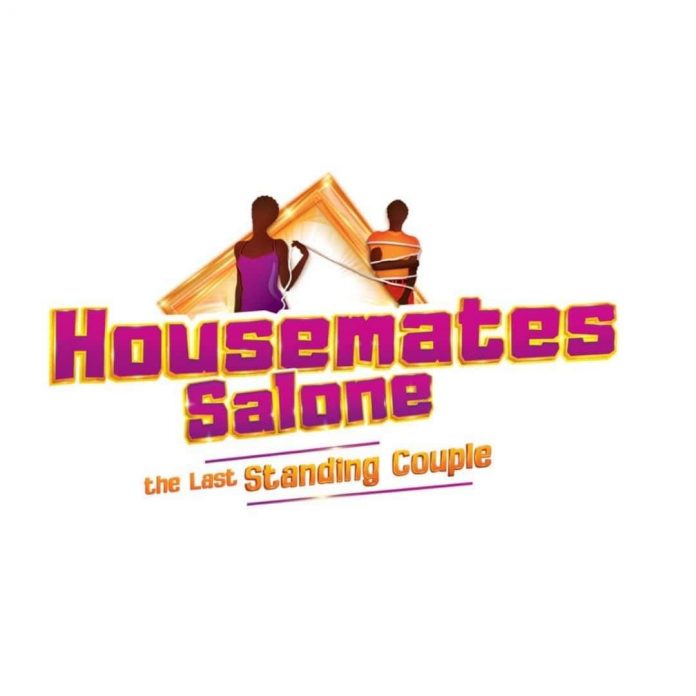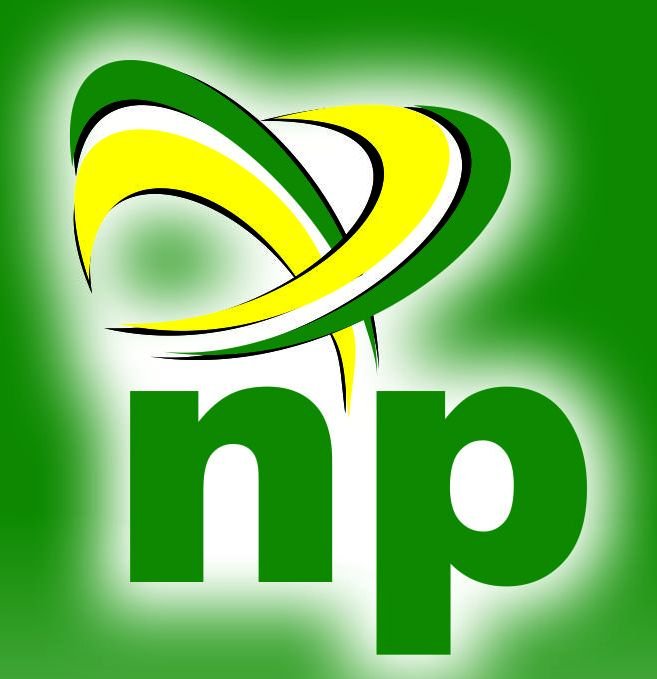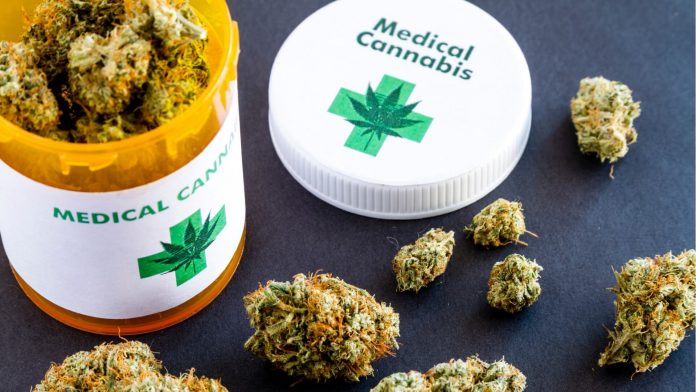The Africa region is losing over $2.4 trillion annually due to its high disease burden, new estimates by the World Health Organization (WHO) reveals. In a report released on Thursday, the UN health agency said this amount is equivalent to US$630 million years of healthy life lost in 2015 due to the diseases afflicting the population across its 47 member states.
Five countries – the Democratic Republic of the Congo, Ethiopia, Nigeria, South Africa and the United Republic of Tanzania – accounted for almost 50 percent of the total years lost in healthy life accrued in the region, according to the report.
The report which was launched during the second WHO Africa Health Forum which ended on Friday in Cape Verde also confirmed a long held view of some global health experts that Non-Communicable Diseases (NCDs) have overtaken infectious diseases as the largest drain on productivity.
NCDs are now said to account for 37 percent of the disease burden, against 36 percent of communicable diseases.
Some communicable and parasitic diseases, maternal, neonatal and nutrition-related conditions, as well as injuries, also contributed to the lost healthy years, according to the report.
According to WHO, $796 billion or 47 percent of the loss in productivity value could be avoided in 2030 if the UN’s Sustainable Development Goals (SDGs) related to health, like as SDG 3 on good health and wellbeing and SDG 6 on clean water and sanitation, are met.
The report also draws attention to the need for increase in spending in the WHO region.
As a target of SDG 3, Universal Health Coverage (UHC) would require countries in the WHO African Region to spend, on average, at least $ 271 per capita per year on health, or 7.5 percent of the region’s gross domestic product, it said.
The UHC calls for countries of the world to provide healthcare and financial protection to all of their citizens, regardless of status.
And healthcare spending is key to achieving this.
Dr Matshidiso Moeti, WHO Regional Director for Africa, lamented the trend of low spending in the region.
Writing in the foreword of the report titled: ‘A Heavy Burden: The Productivity Cost of Illness in Africa,’ she said:
“Four years into the implementation of countries’ efforts towards achieving UHC, current average expenditure on health in the Region falls short of this expectation.”
According to United Nations Conference on Trade and Development estimates, attaining the 17 Sustainable Development Goals will require spending ranging from $ 1.5 trillion to $2.5 trillion per year until 2030, or up to $ 37.5 trillion.
Low-income countries will need an additional $ 671 billion ($76 per capita on average) until 2030 to attain the health-related Sustainable Development Goals (SDG).
To achieve the health-related SDG targets, countries must invest adequately in the development of resilient national and local health systems to effectively, affordably and efficiently deliver the integrated packages of proven cost-effective interventions contained in relevant programmatic global strategies and plans to target populations in need.
The African Union (AU) has a healthcare spending target called the Abuja Declaration, which requires member countries to spend at least 15 percent of their Gross Domestic Product on health.
According to the 2018 WHO Global Health Expenditure Database, only 35 out of 55 AU member states, representing 64 percent, have seen an increase in domestic investments in health, but not enough to meet the AU target.
The database shows that only 2 out of the 55 AU member states meet the 15 percent target.
This latest report comes amidst growing concern over public health challenges facing particularly fragile health systems across the region, like Sierra Leone, Liberia and Guinea which are still trying to recover from the 2014-2016 deadly Ebola epidemic that exposed the weakness of their health systems.
Two years after West Africa Ebola epidemic, the Democratic Republic of Congo is currently battling what has been described as the second largest outbreak of the viral hemorrhagic disease in the world.
This month’s cyclone in Mozambique, which has also led to a cholera outbreak there, is sure to pile more pressure on healthcare system in the region.
The findings of the study on disease burden suggest that health systems strengthening should focus on rich as well as poor countries and on all ages as well as on the specific disease categories, says WHO.
“This report illustrates how achievement of the critical health SDG targets, including universal health coverage, would contribute to poverty eradication efforts on a large scale, reduce disparities in lifespan, tackle social exclusion and promote political stability and economic development in the WHO African Region,” states Grace Kabaniha, Health Economist in the WHO Regional Office for Africa.
Africa Loses $2.4tr. Annually on Disease… – – WHO Avers
Lakka Gets ultramodern TB lab
With the inauguration of an ultramodern laboratory at Lakka in Western Freetown last week, officials say will revolutionize diagnostics and treatment capacity of the bacterial disease in the country. This lab will accelerate the country’s response to Tuberculosis (TB), hospital sources said.
The lab facility, located at the country’s main infectious disease treatment center at Lakkah in the west end of Freetown, is categorized as a Level 3 Bio-Safe laboratory, and it is equipped with a Digital X-Ray machine which can diagnose the bacterial disease within 24 hours.
TB is a highly infectious disease which generally affects the lungs, but can also affect other parts of the body. Its most common symptoms are chronic cough and fever.
But sometimes victims do not show symptoms.
The disease is airborne and can be contracted via coughs and sneezes by infected people.
The disease is referred to as the sickness of the poor, because it mostly affects poor people living in squalid conditions.
TB is also ranked by the World Health Organization (WHO) as the 10th cause of death worldwide.
About 100 million people are affected with the disease annually, 10 percent of which are pediatric cases.
Sierra Leone has an estimated 23, 000 cases of TB, according to WHO figures, ranking it as one of the countries with the highest TB burden in the world.
Countries with more than 10,000 people with TB per year are considered high burden.
But the good news is that TB is a preventable and curable disease and in Sierra Leone a lot of people are being put on treatment.
According to the ministry’s figures, 17, 169 people were put on treatment last year and officials say there has been 90 percent treatment success.
Dr. Lynda Foray, Program Manager, National Leprosy and TB Control Program, lamented the lack of adequate human resources, which has hindered the country’s ability to, among others, conduct contact tracing, as well as stigma and discrimination of TB patients, as challenges to control the disease in the country.
A major issue for Sierra Leone is Multi-Drug Resistance (MDR) TB, which is currently estimated to be between 400 and 660 cases.
The new lab facility, according to officials, places the country in a better position to address MDR and other challenges.
It notably makes it the first country in the Mano River Union (MRU) and the second in the larger West Africa Sub-region after Benin, to have installed such an advanced technology in the treatment of TB.
The Civil Society Movement Against Tuberculosis, welcomed Tuesday’s development.
It’s Executive Director, Abdullai Abubacar Sesay, observed that not only is the facility providing advance technology which is needed to alleviate the suffering of TB patients, it has also made it easier for them in terms of providing free service.
While laboratory services for TB patients are charged in many other countries, in Sierra Leone it has been made free for us, said Mr Sesay.
“We are extremely happy and grateful to the Ministry of Health for having this lab because we know treating MDR TB is not an easy thing to do. So the lab will help diagnose people with TB faster now,” he said.
Parliament Confirms 3 MPs’ Car Crash In Rwanda
Reports of a road accident involving 3 members of Parliament who are among the delegation on a visit to Rwanda, was confirmed by Sierra Leone’s Parliament last Thursday. According to a statement from the office of the Clark of Parliament, the said incident which occurred in the morning hours of the day, involved Saa Emmerson Lamina, the head of the opposition Coalition For Change party in the House, Dickson Rogers of the ruling Sierra Leone Peoples Party and Hassan Priest Sesay of the main opposition All Peoples Congress. It also stated that all three men were responding to treatment.
Sheku Turay, Head of Department, Public Relations at the Parliament of Sierra Leone, confirmed the news.
He told this medium that the three MPs were part of a contingent of eight lawmakers currently on an official visit to Rwanda, namely: the Speaker of the House, Dr Abass Bundu, the head of the opposition bench, Hon. Chernor Maju Bah and a Paramount Chief MP from Moyamba District, Mrs Haja Fatmata Bintu Koroma Meama-Kajue.
The three MPs were said to be in a different car when the accident happened.
The Sierra Leonean delegation is in Rwanda on a five-day study tour of its parliament.
Reports in the local media in Kigali quoted Speaker Bundu as saying that they were interested in learning Rwanda’s experience in empowering women in decision-making, among others.
Rwanda and Sierra Leone share a common experience in terms of civil unrest.
While Sierra Leone underwent a brutal eleven-year civil war, Rwanda’s war culminated in the genocide of 1994 that claimed about one million lives. But the Southern African country has long moved on in terms of development at all levels, compared to the rest of the continent.
The Sierra Leonean delegation was scheduled to visit the Rwandan Genocide Memorial, among various other landmarks in the country, with a view to sharing best practices.
Sierra Leone Woos Investors in Ghana Forum
Sierra Leone is on a diplomatic offensive to rebrand its image as a “perfect destination for investment” with such things as the investment forum it organized in Accra, ADV has learnt here.
A statement from Sierra Leone’s High Commissioner in Ghana, Frances Anderson said Over 200 companies and business think tanks from Africa, Europe, Asia and the United States were attracted to the forum on Wednesday.
Ms Anderson said the event was “in furtherance of President Julius Maada Bio’s broad vision of rebranding the country as a perfect destination for investment.”
Dr Toni Aubynn, President of African Institute of Extractive Industries, Ghana who served as guest of honor, described the event as “timely” and expressed hope that Sierra Leone would develop its economy through trade and investment as well as through strong partnership with other African countries and the private sector.
Ghana was apparently chosen to host the event because of the country’s strong experience in the extractive industry which Sierra Leone relies on heavily for foreign investment.
The Director General of Sierra Leone’s National Minerals Agency, Julius Mattai made a presentation entitled: ‘What investors can take advantage of in the Minerals Sector in Sierra Leone’.
He listed the mineral resources available in Sierra Leone for exploration including diamonds, gold, iron-ore, bauxite, rutile and coltan and noted that the ongoing airborne geophysical survey of the country is expected to determine the true picture of the country’s mineral deposits.
“Sierra Leone wants to attract reputable investors with transparent processes and procedures that will contribute more to the country in the long-term, and has taken steps to provide a conducive environment which will be easy to do business,” Mr Mattai said.
Speaking further, he hinted on the major reforms ongoing in the sector “geared towards making the experience of investors less stressful and rewarding”.
In her statement, Sierra Leone’s High Commissioner, Frances Anderson, expressed delight for the massive turnout. She thanked the Ghanaian government for providing the platform.
Foreign Affairs Minister, Dr Alie Kabba, said Sierra Leone and Ghana have a common and shared vision in the areas of economic development and cooperation amongst African countries.
He added that the long standing relationship between the two countries will be strengthened as the country, under the leadership of President Bio, was determined to change its narrative from one of civil war to one of peace and potentials for investment opportunities.
Also in attendance were key government officials of Ghana and Sierra Leone and the Archbishop of Accra and the former First Lady of Ghana, Mrs Nana Konadu Agyeman-Rawlings, as well as the country’s Deputy Ministers of Foreign Affairs and Trade of Ghana.
Socfin Wants Big Lease Payments To Go To Land Owners
In their bid to engage land owners in their area of operations and resolve the problem of lease and rent payment once and for all, the General Manager & Community Liaison Manager have met with 23 of the 52 villages so far in the concession area where Socfin operates.
The General Manager, Philip Tonks, spoke on various issues including the importance of bringing peace to Malen, about their land lease agreements, lease payments and changes Socfin is proposing to improve the transparency. He told them that the company is lobbying with the Government for a bigger share of the lease rents it is paying, to be paid directly to the land owners. It is currently legislated that only 50% goes to the landowners and Socfin wants more money to go to the landowners.
The General Manager promised that once the verification of land owners has been made by a nominated team set up by the Technical team, Socfin is ready to open bank accounts for all land owners to ensure the money goes directly into their accounts.
The GM also promised that each landowner will receive a bag of rice every 3 months in the following manner: Month 1 – distribution to Zone A, month 2 – distribution to Zone B, month 3 – distribution to Zone C. This will be replicated after the last zone has got its supply. The GM also spoke about the visit of the Technical team set up by the Vice President to look into the affairs in Malen, a move he welcomed.
The people of Malen welcomed the visits by the General and Community Liaison Managers, describing the discussions on the land and related issues as unique. They maintained that they are now ready for peace and expressed their support for Socfin’s continued operation in Malen.
Police Officers Nabbed For Corrupt Activities
Questions about who polices the Police have been answered with the raid of the Congo Cross and Lumley Police stations by the country’s Anti-Corruption Commission last week. Acting on intelligence of a police racket in operation at the two stations, the commission launched a surprise raid and arrested 8 police officers on allegations of extorting money from Motor Drivers across the country and the payment for Land reports on requests sent to the station from the Lands Ministry for members of the public.
According to sources the drivers are requiring on a daily/weekly basis to pay a logging fee of up to Le50,000.00, and payment for land reports requests sent to the police by the Ministry of Lands for members of the public. Similar raids and arrests were made at Shell in the East of Freetown, where a collection racket similarly existed.
Reports received by the ACC further establish that the police have, for over a decade, been illegally demanding that vehicle drivers pay the amount of Le50,000.00 weekly or similar amount daily, as logging fee (booking). This in effect renders those drivers who comply with this demand, immune from being held liable for any offenses, thereby giving them a carte blanche for crime. The ACC Intelligence team has been surveillancing police stations for weeks and they confirmed that the traffic Section at various police stations and posts were in deed engaging in this illegal activity. It is alleged that the said activity has been happening to the knowledge and sanctioned of the top hierarchy of the police, who also had their share in the corrupt cartel. The ACC will also probe into this allegation.
The raids and arrests were carried out by the ACC with the support of the CDIID (the Ethics wing of the police) and all exhibits are with the ACC. It is believed this is the beginning of a nationwide clamp down on police illegality and corruption by the ACC. The 8 police officers have all been detained, including a pregnant officer.
Rutile Killing – Soja Kill Soja
Lance Corporal 18181476 Abdullah Jalloh of the Republic Of Sierra Leone Armed Forces, who is alleged to have shot his superior, Sergeant 18166763 Issa Kamara, at the Nitty Shipping Harbour, Vimetco at the Sierra Rutile axis, is presently at the Bo West Station helping the police in their investigations into the killing.
According to eye witness accounts, the incident happened at between 21.00 – 22.00 hours GMT on March 24th, 2019 at the Sierra Rutile axis. They intimated that the incident took place hours after an argument ensued between the suspect and the deceased over food.
According to police sources, the suspect in his voluntary cautioned statement, said he mistakenly touched the safety and trigger on his rifle, which unavoidably led to the death of his colleague.
The deceased, Sergeant 18166763 Issa Kamara had his head, chest and stomach perforated 26 times by the suspect.
Regional Police Media Officer, Inspector Foday M. Fofanah said on the advice of the State Counsel, they will charge the suspect on the count of murder contrary to law.
The rifle with a 30 rounds magazine is now in the custody of the Police investigators.
27 rounds were fired. 26 empty bullet shells were found by the police. The whereabouts of the last bullet shell is yet unknown.
With Barely Weeks To Go… Anxiety Rises Among Housemates Salone
As the count down towards the close of the reality TV show begins, the House is becoming tenser and lots of gossiping going on. Often tempers flare up between the housemates as they fight tooth and nail to outsmart each other. Whilst trying to do so, they become agitated and confrontational, often requiring the intervention of the chief (the mystery voice).
This apparent dash for time, further makes the show more and more captivating, with the contestants attempting to act funnily, talk tough and appear sexy in a bid to woo more votes from the public. Exuding strong language, behaving humorously and displaying nudity are all part of the show. To release stress, the Housemates can be seen dancing to Sierra Leonean tunes, singing, cracking jokes and arguing. As it gets hotter, they are all appealing to their fans to vote for them. Even hotter is the activities away from the show. Supporters of various contestants are busy campaigning for votes in favor of their favorite housemates. This is done in the social media and in entertainment centres across the country. Conversations now are dominated by the Reality TV show. Members of the public are counting the days to the ultimate climax.
The live Reality Show, which is aired on AYV entertainment’s Channel 34 is indeed a novelty in this country for which the organizers, AYV Media Empire and Africell, have been widely hailed, as both continue to boost the entertainment industry.
What is uppermost in the minds of each of the Housemates is to ultimately emerge as the winner that will bag the Le100,000,000 that has been set aside as the star prize.
According to the organizers of the show, what is at the center of organizing the Reality TV Show is youth empowerment, providing a platform to showcase young people’s talents and at the same time give them the opportunity to acquire new skills like learning how to cook, socialize, how to play certain games, build confidence, how to comport themselves publicly and to speak fluently. They have been benefitting from interactions with officials of certain corporate entities, like Rokel Commercial Bank, Guarantee Trust Bank, Life By Design, who have been explaining to them how their institutions operate. They are also given motivational lectures.
It is yet not known whether the way the Housemates are catered for falls under empowerment because they are offered good food and drinks nurturing them well. It is factual that the Housemates are really enjoying sumptuous food,
AYV, under its charismatic Chief Executive Officer, Ambassador Anthony Navo, has been at the very forefront of empowering young people and making them very productive and relevant in society. He has been doing so passionately and he is held in high esteem for championing that cause.
A good aspect of the Reality TV Show is that it has exposed all the participants and as viewers continue to follow it, there is the likelihood that in the future some of them will become Brand Ambassadors, artists or role models. As the Reality TV Show is climaxing, it is undoubtable that it will continue to be very enticing and lively.
NP Is A Beacon Of Hope For Sierra Leone
Amidst the economic turmoil the country is facing, National Petroleum (NP) Sierra Leone Limited sheds a ray of hope for Sierra Leonean Businesses. It epitomizes what any determined group of Sierra Leoneans can achieve when they come together and invest in something. Today the company is the leading supplier of petroleum products in the sub-region, only because some 35 nationals were patriotic enough to plough their end of service benefits into the formation of the company. This example, if emulated by fellow compatriots, will change the trajectory of the country.
This apparent embodiment of the Local Content Policy turns the wheel of economic development in the country, as it accelerates the conveying of goods and services across the country, enhances the government’s revenue generation drive, as more businesses are encouraged to explore hitherto unexplored areas and create jobs for more people. The rippling effect of having fuel to probe further into the interior ensures the delivery of services and goods across the country, thereby encouraging more businesses to flourish and eventually pay more taxes to the government.
As an indigenously owned company, they are not afraid to take risk and venture into various parts of the country, unlike their counterparts who may prefer to embrace the capital and its immediate surroundings for fear of losing. NP-SL believes in breaking new ground and this has been the driving force behind its expansion drive beyond Freetown, much to the delight of its compatriots. As Sierra Leoneans, this brings pride to its workers and its owners, a typical example of their contribution to nation building.
Its services are not focused in the capital, but are replicated nationwide. Everywhere they operate, they offer the same services, effectively providing the same services customers are looking for in the headquarter towns. Customers can simply get from its mini mart what they will get in any big town. It is therefore not surprising to see their outlets being patronized heavily by both locals and foreigners across the country. To make the service easily accessible to everybody, NP-SL has introduced the NP Smart Card, which enables organisations and individuals to purchase fuel with the smart card with ease and avert the bureaucracy that previously existed. By introducing this latest technology, it avails its customers to conveniently do transactions. This has increased easy accessibility contrary to unnecessary spending of time to purchase these petroleum products at different filling stations. It has also facilitated the work of government institutions, business people and ordinary citizens who may not wish to carry huge cash on them when travelling across the country.
Established by some 35 Sierra Leoneans years back, NP has grown to become one of the most successful indigenously owned companies in this country. Because of its strength through effective management, the company was able to open branches in several West African Countries like Guinea, Ivory Coast, Liberia, and the Gambia.
An outstanding reason which could be stated why this indigenous company is making exceptional inroads is simply because customer care is always taken paramount; always ensuring that customer satisfaction is prioritized. The company truly deserves commendation in that direction.
With well-motivated members of staff who know how to efficiently treat customers, NP has become very endearing to many.
In all the five countries where NP is operating, the company always ensures that petroleum products in terms of fuel and other lubricants are available in order to avoid shortage taking place.
It has been established that using charcoal and wood for cooking purposes poses health hazards and depletion of our forests. Against such a backdrop many have commended the company for making it possible to get access to NP gas cookers, which are indeed safe and friendly for domestic use. Gas is as well available at the company\s filling stations which residents in these five West African countries can purchase at affordable prices.
NP Limited has truly made Sierra Leone proud as it continues to fly the Green, White and Blue in West Africa with the story of how we indeed have capable entrepreneurs.
As Liberia’s Medicinal Marijuana Factory Imminent… A Perfect Example For Salone To Follow
Whilst the government of Sierra Leone is yet to make up its mind as to whether to grant licenses to interested individuals to grow and export marijuana for medical purposes, the sister republic of Liberia is poised to grant permission for the building of a Medical Marijuana Factory in the country. This will not only provide jobs for the huge number of unemployed youths in the country, but the country stands to benefit economically from this venture. Sierra Leone’s government should take a cue from its neighbor and bring to an end the erratic rise of the dollar, the huge unemployment rate and increase its revenue generation from the export of this herb.
As the campaign to legalize the cultivation of medicinal marijuana in Sierra Leone intensifies, the Government can learn a very useful lesson from neighboring Liberia whose government is considering granting permission for a medical marijuana factory to be built.
A story from the Liberian Observer states that reports reaching their medium from Liberia’s consular office in New York, revealed that some United States based pharmaceutical companies have expressed interest in establishing a pharmaceutical plant in Liberia to produce medicines from the marijuana plant.
Sources further say a business delegation from the US is expected in the country shortly to begin discussions with relevant officials, including officials of the National Investment Commission, the Ministry of Health and those of the National Pharmacy Board, as well as with officials of the Liberia Medicines and Health Products Regulatory Authority.
Thinking of the relief the non-toxic medical marijuana brings to patients suffering from the debilitating effects of certain ailments and the revenue that will be generated; there is the need for the SLPP’s New Direction Government under the leadership of President Julius Maada Bio to pro-actively ensure that the legalization materializes.
Medical marijuana refers to the whole, unprocessed marijuana plant, or its basic extracts, for the treatment of several diseases and other related symptoms.
Scientific studies show that chemical cannabinoids could help treat a range of diseases and symptoms, which has attracted several biopharmaceutical companies, globally, over the past two decades. The market is expected to witness significant growth, owing to legalization in several countries and high demand for both medical and recreational purposes.
Doctors also prescribe medical marijuana to treat muscle spasms caused by multiple sclerosis, nausea, poor appetite, and weight loss, caused by chronic illness, such as HIV, nerve pain, and Crohn’s disease. Thus, with the increasing applications, there is a huge opportunity for marijuana for medicinal purposes.
Speaking under condition of anonymity, a local health official noted that there is a general perception that the large percentages of mentally challenged individuals parading the streets of Monrovia, including “Zogos” are drug addicts. He said while this may be true, it is however questionable whether such addiction is actually from marijuana use or the use of hard drugs such as, heroin, codeine, tramadol and cocaine, especially crack cocaine commonly called “dugee.”
The health official further noted that first time users of marijuana often experience what he referred to as ‘panic anxiety reactions’, which makes an individual to act as if he/she is crazy. The official cited the report from Talbott and Teague (1969) of an American registered male nurse in Vietnam, with no previous history of mental illness, after smoking his first marijuana cigarette, became aware of a choking burning sensation in his throat.
He thereafter went to a civilian bar where he began feeling apprehensive, suspicious and fearful that the North Vietnamese meant to harm him. Feeling terrified, he returned to his quarters. But when examined, he was anxious and disoriented to time, but not to person and place and his anxiety about being harmed by nationals was rising and falling like the waves of the ocean. He said, according to Talbott and Teague, the nurse was treated with sedation and released after 36 hours without any symptoms at all.
Experiences of such kind, the official noted, is common among first time users and could be the reason why marijuana is perceived as a dangerous drug. A long serving former Police Officer (name withheld) also observed that hard drug use is currently on the increase among the youths.
He observed that in the past, hard drugs were not commonly available unlike now, where easy availability of hard drugs and drug addiction is contributing to increased criminal behavior. He averred that there is a need, given his experience, to establish treatment centers for addicts and tougher laws on hard drugs and harsh punishment for those who trade in hard drugs.
As regards the reported increase of marijuana use among youths, the former Police official noted that dealers of hard drugs always tend to take advantage of smuggling networks established by marijuana traffickers, as most marijuana consumed in Liberia is imported either from Sierra Leone or elsewhere in West Africa, including Ghana and Nigeria.
Meanwhile, a noted economist said based on his observations, Liberia is losing millions of dollars each year to an underground network of marijuana smugglers and middlemen which, he said, is not good for the country.
It is against this backdrop that pharmaceutical companies are expressing interest in securing new markets and sources of supply. Liberia, according to observers with plentiful sunshine and adequate rainfall is ideal for the cultivation and processing of the marijuana plant into medical products, the economist concluded.
Meanwhile, the Sierra Leone government has been dragging its feet in terms of ensuring that licenses are granted to individuals willing to grow and export marijuana for medicinal purposes. We should also consider the huge economic benefits such a move will give to the country, especially taking into consideration the current state of the country’s economy. Liberia’s President George Weah has decided to take advantage of the huge economic benefit of the herb and the possible address of his country’s unemployment rate, can Sierra Leone’s President Julius Maada Bio follow suit?

